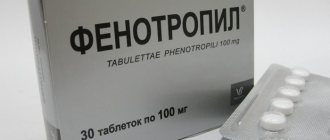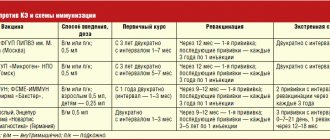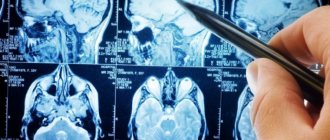07.07.2021
In July, many regions are expected to be hot again. How to protect your health?
Nadezhda Runikhina , tells AiF about this .
Pressure surges
– Nadezhda Konstantinovna, how does the well-being of an elderly person change in very hot weather, what are the most dangerous symptoms?
– Heat is a serious test for the body of an elderly person, who, as a rule, has several diseases. First of all, the load on the cardiovascular system increases, the heart rate increases. But blood pressure can behave differently: for some it increases, for others it decreases. You need to regularly measure your blood pressure and take medications on time.
Dehydration, i.e. dehydration, is very dangerous. In the heat, the evaporation of moisture from the skin and mucous membranes increases, a person loses not only water, but also electrolytes - sodium, potassium, calcium salts in the blood . And you need to replenish fluid on time. However, older people may have problems with this. As many people age, their thirst becomes worse. There are patients who, due to a geriatric syndrome such as urinary incontinence , specifically try to limit their water intake. Others try to drink less to avoid excessive sweating . And a decrease in fluid in the body leads to a whole cascade of adverse reactions. In particular, the risk of thrombosis increases, as blood . And this, in turn, can lead to heart attack , stroke, deep vein thrombosis of the lower extremities - depending on in which vessels the blood clots have formed.
– Some older people complain of weakness and dizziness in the heat...
– This may also be a consequence of the fact that they do not drink enough fluids. Due to dehydration, orthostatic reactions develop. When the body position changes, blood pressure does not increase (as is normal), but, on the contrary, decreases significantly. brain worsens . As a result, dizziness , darkening of the eyes , a person may lose consciousness and fall, and be seriously injured. Brain damage can be more serious when acute cognitive impairment develops due to dehydration and overheating, delusions and hallucinations (delirium) appear. Such disorders are possible in very elderly people. It starts with the fact that a person simply becomes very inattentive. It would seem not scary. But in reality, since the brain controls all functions, this affects all the activities of the body.
Causes
The occurrence of coma is always caused by damage to the nerve pathways caused by severe pathologies of the central nervous system. A coma cannot be an independent disease.
The reticular formation is a mesh-like structure that runs throughout the brain. All signals from the surrounding reality pass through it, filtered and systematized. When the cells of this unique system are damaged, the nervous system's connection with the outside world is lost.
The causes of damage to the reticular pharmacy system are divided into:
- Physical: cerebral hemorrhages, injuries, bruises, bullet wounds, strokes.
- Chemical, in turn, are divided into external and internal. Poisonous compounds coming from outside can be narcotic substances, sleeping pills, neurotropic poisons, toxic toxins in infectious diseases. Internal chemical compounds are formed as a result of metabolism and diseases of internal organs. These include ammonia (severe liver pathologies), abnormal levels of glucose and acetone (diabetes mellitus), and insufficient oxygen in the blood (hypoxia).
- The most severe is the combination of physical and chemical effects on the reticular formation. The result is a worsening of intracranial pressure indicators. This case occurs with tumors of the central nervous system and traumatic brain injuries.
Don't bring it to the emergency room
– Diabetes mellitus is a very common diagnosis in older people. What do they need to remember in hot weather?
– Yes, the most vulnerable among all patients are patients with metabolic syndrome. And diabetes mellitus is a prime example. Already initially, these patients have problems associated with the regulation of not only carbohydrate metabolism, but also protein and electrolyte metabolism. Sometimes they are overweight. Therefore, in hot conditions there may be higher blood , but what is even more dangerous are episodes of hypoglycemia in patients who are on insulin therapy. Hypoglycemic conditions can quickly lead to very serious complications. Therefore, it is more important than ever for such patients to more carefully monitor medications, insulin doses, and follow a diet with a reduced amount of simple carbohydrates.
– What could be the consequences of prolonged heat?
– Decreased functional status may occur. In hot weather, it is very difficult to maintain physical activity. Elderly people stay at home, sometimes in bed, and stop moving. This very quickly leads to the development of muscle weakness and functional deficits. You should definitely take a walk, for example, in the very early morning hours in a park, along the shore of a pond, or at least go out and just sit in the shade of trees or buildings.
Another danger is nutritional deficiency. Of course, in the heat, appetite decreases, but you can’t completely give up food. Juicy vegetables, fruits with a high liquid content, and fermented milk products (if there is no intolerance) are very useful.
Those who have very elderly relatives should pay closer attention to their hygiene and avoid diaper rash and abrasions on the skin of an elderly person. In the heat, infection of these tissues can occur very quickly.
– Is the number of visits to doctors from older patients increasing?
– In hot weather, the flow of elderly patients with heart attacks, strokes, and injuries increases (if a weakened elderly person falls, the injury may be incompatible with life). There are especially dangerous outcomes among people with many chronic diseases, diabetes mellitus .
On hot days , as a rule, there are not many calls the clinic It is often difficult for an elderly person to get organized, come and see a doctor in the heat. And that's the problem. As a result, there are emergency calls - heart attack , stroke, falls, trauma, hypertensive crisis. For example, in Germany it was calculated that in hot weather, every third reason for hospitalization in geriatric patients is associated with dehydration (the first two are cardiovascular diseases and injuries). It is dehydration that causes emergency hospitalization. While the problem can be solved very simply: control the amount of water you drink. It is no coincidence that in medical institutions, especially in geriatric departments, medical staff walk through the rooms with water an additional 2-3 times a day and ask patients to drink more. Therefore, in the family, relatives should pay more attention not only to what pills the elderly person has taken, but also to whether he drinks enough water.
Advice from Dr. Runikhina
- Carefully monitor how much fluid you drink. For those who live alone and are not confident in their memory, you can use the same principle as with medicines that are put in a pill box for the day: in the morning, pour water into a 1.5-2 liter bottle or carafe, put it on the table and drink during the day. It is important to drink not only water - fruit drinks, compotes, mineral water, tea are suitable.
- The best diet in the heat is a light dairy-vegetable diet. Vegetables, fruits, all kinds of smoothies, dairy products, low-fat kefir or kefir diluted with water, low-fat cottage cheese. This will provide the body with vitamins, minerals, fiber and protein. It is better to eat little by little and have small snacks more often.
- Reduce physical activity. Don't even try to work in the garden. However, you cannot lie down all day. You need to get up and walk. You can go outside and sit or take a walk in the shade, in a park, next to a fountain or pond.
- You should not swim in open water in hot weather. Due to the large difference in air and water temperatures, there is a risk of developing vasospasm and , as a result, a heart attack.
- Elderly people should be careful in the open sun - only wear a hat, be sure to use sunglasses, and cover exposed skin with light-colored clothing. The risk of skin damage and the development of cancer under the influence of ultraviolet radiation in older people is very high.
- Take water treatments at home as often as possible. This will refresh and prevent skin diseases.
When to see a doctor immediately
- In case of a fall, even if there is no visible damage or injury.
- If there is chest pain, shortness of breath.
- If there is asymmetrical weakness in the arms and legs , it is difficult for you to speak, speech has become slurred and unintelligible.
- If a person behaves differently than usual: he becomes very sleepy, starts talking, repeats the same thing (possible symptoms of brain ).
- Nausea and vomiting do not go away
Main symptoms and signs of coma
The process of coma development can be either almost instantaneous or gradual. This can be a time period from several minutes to several days. Symptoms of comatose states may vary depending on the underlying disease. A very important point is the timely recognition of the condition preceding the onset of coma. In some cases, in addition to loss of consciousness, symptoms include changes in the color of the skin, the presence of unusual odors in the air exhaled by the patient, a decrease or increase in body temperature, as well as pressure. X-ray, laboratory and instrumental examinations make it possible to clarify the diagnosed coma.








